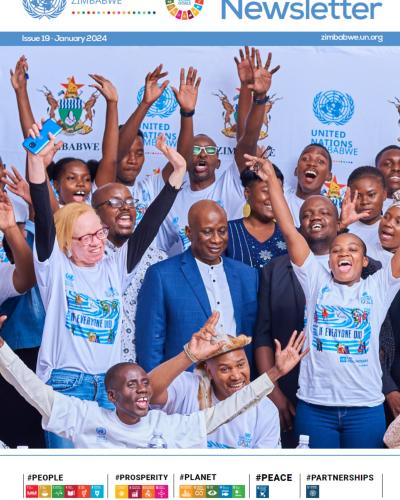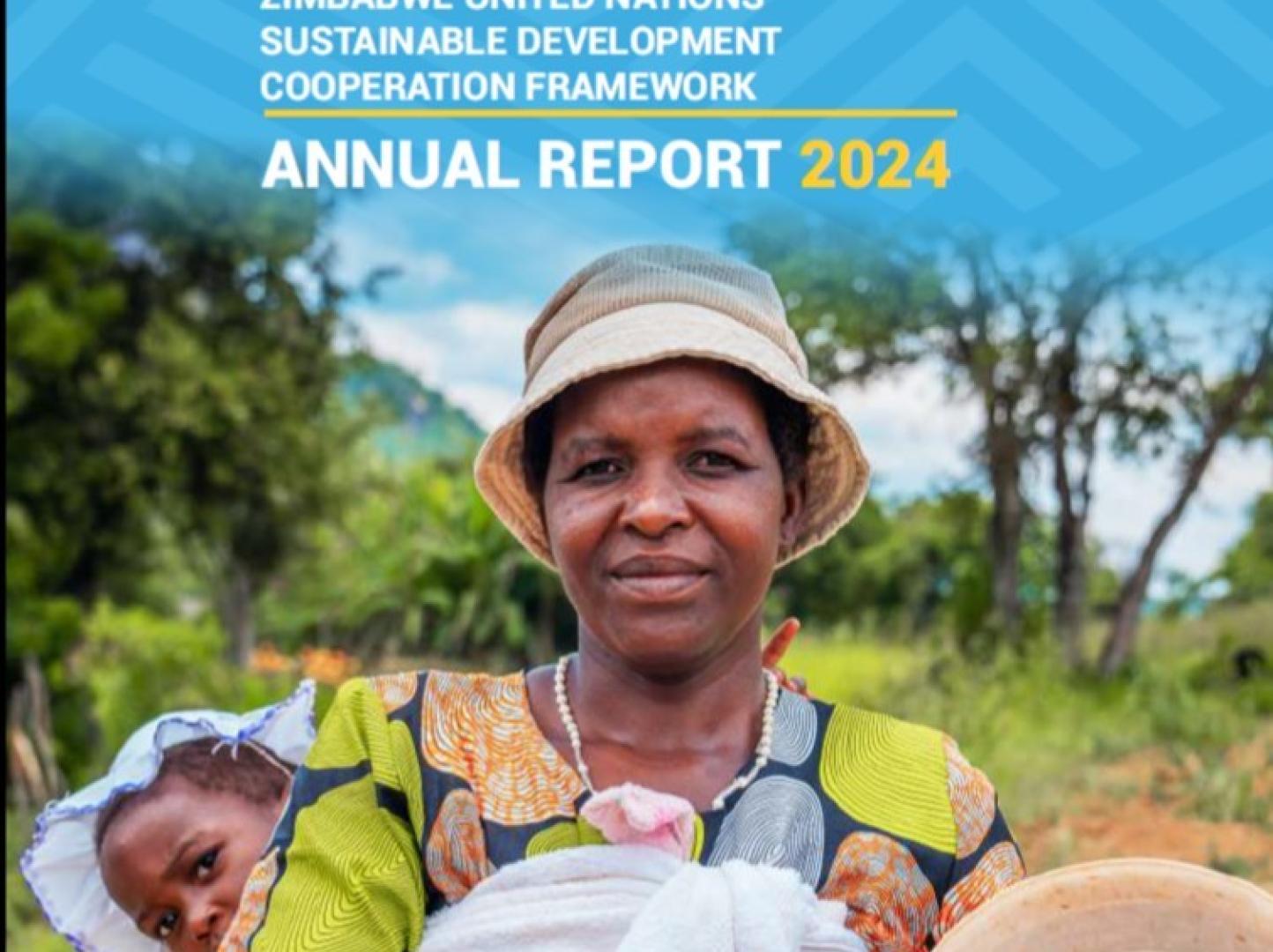UN Zimbabwe Newsletter Issue 19

Note from the Resident Coordinator
Greetings for the New Year. In this newsletter, we are delighted to offer you a glimpse of the United Nations Development System’s work in Zimbabwe, focusing on recent joint campaigns, initiatives, and partnerships.
These events and initiatives illustrate a dedicated effort to support the Government of Zimbabwe in addressing critical social, economic and environmental issues to advance sustainable development. Zimbabwe's commitment to accelerate progress to achieve the Sustainable Development Goals (SDGs) has been a central theme, with various stakeholders collaborating to support youth engagement, combat HIV/AIDS, eliminate mother-to-child transmission of HIV, and promote community leadership in the fight against AIDS. Efforts also include private sector engagement for digital innovation and green economy, community resilience building, combating climate change, and partnerships at national and grassroots levels to enhance development programmes and results reporting.
The recent Youth for SDGs summit (2023) and the focus on empowering young Zimbabweans underscore the recognition of their pivotal role in driving positive change and advancing the nation's development agenda.
The emphasis on providing quality education and skills development for the youth is also highlighted as a crucial step in preparing them to contribute significantly to Zimbabwe's future.
In the fight against HIV/AIDS, collaborations between the UN, government, and various organizations emphasize the importance of inclusivity, innovation, and community engagement. Additionally, the initiatives to eliminate mother-to-child transmission of HIV, celebrate achievements in eliminating violence against women and girls, and promote gender equality are significant steps towards building a more equitable and healthier society leaving no-one behind.
Furthermore, the involvement of the private sector holds promise for Zimbabwe's economic progress and the realization of the SDGs, particularly with an emphasis on sustainable industrialization and green technology, demonstrating a forward-looking approach to economic development and environmental sustainability.
Efforts to address climate change and build community resilience, including lessons from the Zimbabwe Idai Recovery Programme, as well as advancing the power of green technology in Zimbabwe are important reference points. Strong partnerships in enhancing development results reporting, joint advocacy to invest in women and girls, showcasing devolution success, and commitment to education for refugees further underscore the dedication to inclusivity, local empowerment, and community based development.
Overall, the UN ongoing efforts, partnerships, and initiatives in Zimbabwe demonstrate a commitment to support an inclusive and sustainable development. It emphasizes the importance of collaboration and innovation to accelerate progress on SDGs and to drive progress in the achievement of national development priorities articulated in the 2021-2025 National Development Strategy and Vision 2030 to become an upper middle-income society.
We hope you enjoy reading the first quarter newsletter of the UN in Zimbabwe.
Edward Kallon
UN Resident and Humanitarian Coordinator




















